
|
Present
Past
Subjects
Projects
Misc

|
SEPTEMBER 2000
FRIDAY, 1 SEPTEMBER 2000
Who's feverish?
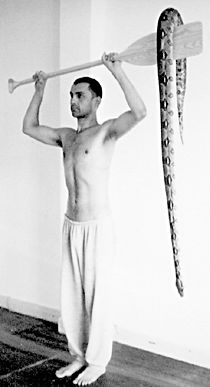 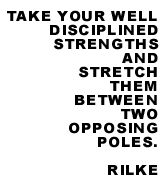
Spell White (studio version). 1992.
Back To School
- Today, 1 year ago. (September 1, 1999):
-
"Following up recent considerations at home and abroad, I'm pleased to present this month's binary musing: preservation (memory, saving, protecting, eating, collecting, fat) vs. disposal (forgetfulness, letting go, release, loss, waste, rejectamenta, vomit)."
"If it is true that the purpose of individual memory is to survive the death of the moment, then it is equally true that the purpose of collective memory is to survive the death of the individual."
- Today, 2 years ago. (September 1, 1998):
-
"With my own recent attention to CNBC and the 'Global Economic Meltdown' it was logical to consider 'the economy of the media' and whether or not 'the media were economical'; and to arrive at the conclusion that media students should pay less attention to categories such as 'film', 'video' and 'photography' and more attention to the play of these media on their minds -- both individual and collective. How? By paying attention to 'their attention' and by watching the markets (markets being the best indicator of collective impulses)."
"From this last sesssion, one item really stands out. While talking about global information Martin told the story of a friend of his whose life philosophy consisted of putting his 'attention' on about 30 friends and nothing more. No television news. No newspaper stories of trouble in Africa. Martin said his friend is the happiest person he's ever met."
SATURDAY, 2 SEPTEMBER 2000
An evening with Allucquère Rosanne Stone.
Sandy Stone. Artist. Neurologist. Social Scientist. Transsexual-cyber-diva. Author of The War of Desire and Technology at the Close of the Mechanical Age. Director of the Advanced Communication Technologies Laboratory at the University of Texas. Each time my attention has taken a desultory dip into the sea of contemporary cultural theory it has bumped up against this formidable woman's writings and reputation. A fixture. And last night I got a chance to see her live at V2.
I was impressed, but to be honest, I wasn't exactly prepared for the experience, so I wonder how much the bait-and-switch surprise of expecting a lecture and getting something else in its place added to the impression.
Sandy Stone doesn't lecture. Sandy Stone does cabaret. Camp, conversational, alternately sincere and fake, self-reflective and flaunty, she sits and struts and informs and theorizes. Her show isn't very good. But beyond the show elements, beyond the bad jokes and the noisy scene where she gets the audience to help her masturbate to orgasm, it is clear that Sandy Stone is doing something right.
As a matter of fact, she reminded me a lot of Madamoiselle Comet:
"She was a perfect oddity. The fact that she was entertaining had no psychological connection with the fact that we were watching her. She was creature of pure pleasure. She was a phenomenon whose humourous slant did not sympathetically attack us; being a slant of independence, not comedy. Her long bright hair was dead. She could not be loved."
"Therefore Mademoiselle Comet became our sole entertainment. And she more than amused; we loved her. Having complete power, we placed her in a leading position, where we could observe her better. And we were not amused. We were still ascetically humourous. Thus we aged properly. We did not, like mirth-stricken children, die. Rather we could not remember that we had ever been alive. We too had long bright dead hair."
And when the show was over, and the credits were rolling, I leaned over to the woman sitting next to me (who was Josephine Bosma), and asked her what she thought of Stone's style.
"Well," she said, "This way you listen better and maybe remember more."
"True," I said.
So what memories did I take away from my evening with Allucquère Rosanne Stone?
I'll always remember her story about how, as a young researcher at the Meninnger Clinic in Topeka Kansas, she taught mynah birds to stutter for the National Institute of Health. (Why was this interesting enough to remember? I expect because of the use of feedback-delay to cause the birds to stutter -- it made me, strangely enough, think of Benjamin Libet, but there is obviously no connection -- and the fact that for years I've had an idea to do a piece with a mynah bird.) I'll remember her insistence that identity and gender are constructs, that the 'mind in our body,' what she called our thought-body, is extraordinarily creative, adaptable and fluid. That there is no there, there. (Identity-wise think 'anatta,' the buddhist doctrine of no-self. Gender-wise I accept that gender is malleable, and to a degree socially constructed, but I still see a fundamental -- chemical, tantric -- difference between men and women.) And more than anything, I'll remember her story of meeting her recently dead father in a dream and the moment that ensued, "more vivid than anything I had ever experienced in waking reality." (Temporary 'self'-organization into a being-in-the-moment-body following a period of severe crisis?)
Links:
Sandy Stone's web site. (Lots of images. Gives you a good idea of her show.)
Her The Empire Strikes Back: A Posttransexual Manifesto.
SUNDAY, 3 SEPTEMBER 2000
Erratica. Creative turbulence.

Rotterdam's Wereldhaven Festival. It's raining. On a barge parked under my window, the Dutch baritone Marco Baker serenades the umbrella carrying crowds with a rendering of 'O Sole Mio.' Inside, I grit my teeth, close my eyes and concentrate on Steve Reich's 'Music for 18 Musicians' -- with a good pair of headphones firmly jammed over my ears.
Link: Spare Repetition: The Contemporary Sound of Minimalism.
Mood swings versus 'the noise of culture.' Reading how the young governess of 'The Turn of the Screw' very prettily describes her emotions, "... as a succession of flights and drops, a little seesaw of the right throbs and the wrong," one realises how the instruments of the playground, the seesaw and the swing set, the merry-go-round and the ferris wheel, have come to represent, as metaphors, the changing states of our experience. As rhythmic oscillations, as regular ups and downs and to's and fro's, the seesaws of the playground seem to satisfy our mental and bodily desire for simple movements -- ie. those not possessing too many degrees of freedom and which are, more or less, predictable.
Simple movements are the result of the simple application of simple forces.
I.e. simple information...
But what about more complicated, non-linear, movements? The chaotic 'erratica' (erotics) of wide open systems fueled by complex forces and contradictory information? Where the future is completely unpredictable? Where are the metaphors for systems that are either on the verge of breaking down entirely or re-organizing at some greater level of complexity? (Aquiring new behavior...)
From Barbara Comyns' final novel, 'Mr. Fox' (thanks to Ray Davis who recently brought this remarkable writer to my attention):
"I suddenly began to feel awfully happy. When I rode about on my heavy bicycle it seemed as if I was flying and I went down the hills without back-pedalling. I enjoyed all kinds of things I'd never noticed before -- people, for instance. I'd never cared about them much, but they really were rather nice. Often I'd stood in a street looking at them and thought how ugly they were; if only the street became filled with squirrels and bears and deer and foxes, how different it would look! How could people think they were lords of creation when they were so hideous and miserable and wherever they went they made ugliness and called it 'progress' and 'civilization'?
"Now I began to notice how kind some people looked and how interesting others were, and some were so good-looking it was a pleasure to see them and watch them moving. I thought perhaps people are an acquired tasted like olives."
Links:
A page listing the books of Barbara Comyns each with a short synopsis and/or set of quotes.
MONDAY, 4 SEPTEMBER 2000
Protect me from what I want.
Secrets
Oh dear, how bloody incestuous we be. Just as I was about to comment on JK's entry on the value of the unresolved -- I find that he has commented on my entry on the good of erratica, and cleverly added to boot, "our mood swings sometimes push one another in the back, like a favorable wind...
The entry on NQPAOFU (edited slightly and highlighted for the sake of clarity):
"Keeping some of one's questions unresolved is harder than you might think, therefore a business of secrecy. As soon as you communicate the unresolved, your addressee will be inclined to help you solve the 'problem'. If that would be your intention, you would already have done it on your own strength, or maybe you would be asking for 'help,' rather than sharing your unresolved for the sake of its unresolvedness -- as I would mean to. Alas, my unresolved questions have to remain secret here, for that very reason -- in order not to begin solving them."
And oh yes. I can definitely relate to this -- this cherishing, this nursing, this esteeming, of the unresolved (mess). Our will to draw out the unresolved as long as possible. To cultivate it without seeking a cure for it. To shelter it and actively resist any form of its alleviation. To aestheticise it.
Our will. Our will to want (sureity, solutions, equilibrium) and our will to protect ourselves from what we want (sureity, solutions, equilibrium).
And I think: Just as we keep our secrets from others (to protect our truths), we must be keeping our secrets from ourselves. With the ever present danger that we may, in a moment of temporary weakness, unburden ourselves and seek 'help' and resolution, what could be a safer strategy?
Somewhere under my skin: 'Love is a puppy born into the lap of truth.'
Links:
Image of The Rushing to the Finish-Line Demon (18.02.00).
TUESDAY, 5 SEPTEMBER 2000
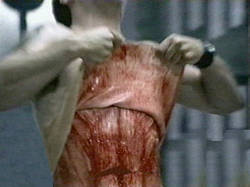 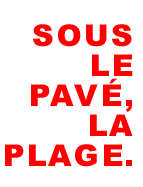
(Under the Pavement, the Beach.)
The Thinking Body
"For every thought supported by a feeling, there is a muscle change. Primary muscle patterns being the biological heritage of man, man's whole body records his emotional thinking."
-- Mabel Ellsworth Todd. The Thinking Body. 1937.
WEDNESDAY, 6 SEPTEMBER 2000
Variation. Difference. Novelty.
Change Makes The World
Change. I understand that we must have change in order to 'experience' the world. No change*, no world. I also understand that if, for any reason, we become deprived of change (or sense of change, or signs of our presence in the world) we start to manufacture our own change (or sense of change, or signs of our presence). And finally, I understand that if we cannot achieve this easily within 'reality,' we achieve it without.
* Think: differences in physical potentials -- pitch, pressure, light levels etc.
|
From Deane Juhan, Job's Body:
"If I lie motionless for a period of time in a sensory isolation tank, or if I adopt a stress-free and motionless meditation posture, I begin to lose the crisp sense of my physcial boundaries, and my mental picture of the spatial relationships of my body parts undergoes bizarre distortions. My feet and hands may seem miles away. My body as a whole may seem incredibly dense and heavy, or large and inflated like a huge balloon. I may feel my physical self dispersing like a gas into the void, or I may feel no connection whatever between my conscious awareness and my living cells.
"Such induced hallucinations are often triggered by the disassociation of the sensory and motor elements that are welded together in our normal states of perception. This disassociation can also be accomplished by various drugs, such as the opiates or the hallucinagens, whose pharmaceutical effects disrupt our sensory/motor unity in various ways. In all these situations, the conscious activity of the mind leaves far behind the concrete feed-back loops between my nerves and my muscles, and without the solid underpinning of movement correctly correlated with sensation, my thought processes confuse some of the basic distinctions between internal feeling states and objects. The marvelous or hideous phantasmagoras of my imagination take on as much palpable reality as anything else I am experiencing at the moment. The same hallucinatory effects occur in the muscularly and sensorily suppressed state of sleep."
|
Excerpt from an interview with Dr. John Lilly M.D. (from Mavericks of the Mind):
DJB: "Have you ever given ketamine to a dolphin?"
JOHN: "No. I gave them acid to see if it would knock out their respiration. It didn't. I couldn't understand what was happening to them on LSD except for one thing they did. They turned around along the tank at the same time, and suddenly they turned their beaks down and turned on their sonar straight downwards. I remember on my first acid trip that suddenly the floor disappeared and I saw the stars on the other side of the earth, so I stamped my foot on the floor to find it. That's what they were doing.
"Also, the dolphin Pam had been spear-gunned three times by Ricco Browny in the "Flipper" series. The first time, Pam went over to Browny and pulled the spear from him. The second time, she took one look at him and turned away. The third time she ran like mad and wouldn't go near him or any humans. It was just awful. So when we got her she was staying away from us with the other dolphins. So I gave her LSD and she climbed all over us. It was marvelous."
|
Links:
James Thurber. The Secret Life of Walter Mitty. 1942. (From 'My World and Welcome to It.')
Chris Amirault. Pseudologica Fantastica and Other Tall Tales: The Contagious Literature of Munchausen Syndrome. 1995. Literature and Medicine 14.2.
Miguel De Cervantes. Don Quijote. 1605-1615.
THURSDAY, 7 SEPTEMBER 2000
Rubbing our culture desire back into ourselves.
Synonymous Spells
Will to Power = Striving = Self-Organization = The Red Queen = Up The Entropy Slope = The Hyperactive Survival Mechanism.
- Will to Power...
-
|
"The TAFZ (Temporary Autonomous Freedom Zoo) is a drug experience which passes through you. You don't travel through the TAFZ, it travels through you. So why leave your house for a TAFZ? Contact/contagion remains necessary for infection. You would make the effort to go if the TAFZ were a social event. (The party TAZ). You would go if felt you only had a short time to 'see' the TAZ and it was in your interest to see it live. Roll up in the animal skin. Feel TAZ/Africa in your nose. Put TAZ/Africa in your mouth. Get fucked by TAZ/Africa."
"In the virtual zoo one does not look at the animals but inhabits them... To look is to hunt. My second ideological banner from Pakistan was a line from the 'Jungle Book' "How goes the hunting, hunter bold?" (In Urdu: crude, rough, uneducated *street people* are called jungli's) Indirectly another critique of will to power."
From the Food Chain Suite (1993).
|
- Striving...
-
|
"There is no blame in striving to make oneself more comfortable, in the maintenance and modification of one's territory to better suit one's needs and conditions for survival. It is the way of nature and culture. It is the way of all living things, thought virus, bird, bee, even 'Gaia.' (OTOH as the first noble truth, this life striving may be the root of all suffering.)"
From 'Territory Modification' (March 13, 2000).
|
"There Is No Future, But Still Tons of Striving" (July 16, 2000).
- Self-Organization...
-
|
28
"Smithson's celebration of entropy and decay developed from his interest in physics andgeology and reflected the scientific thinking of the late 1950's, which in the area of dynamics was still based on 19th century ideas. In 1979, six years after Smithson's death, Prigogine's Order out of Chaos introduced to physics a new dynamical paradigm to replace the old ideas. Non-linearity and self-organization offered a way of understanding the behavior of large scale processes and introduced a view of the universe and world machine as a process running up rather than down. Entropy found its counterpart: Extropy."
29
"Smithson, as far as I know, never called his work 'gardens'. If he had, I'm sure he'd describe Tar Pool and Gravel Pit (1966) and Asphalt Rundown (1969) as 'visible analogs' of entropy."
30
"Smithson reads well backwards."
From Concept Redux (Notes for 'A Garden For Two Cars,' 1997).
|
Self-Organization Definitions (Lovelock, Delanda).
- The Red Queen...
-
|
"Thinking about Howard Bloom's book on group (or system) selection, The Lucifer Principle, and about the words of Alice's Red Queen (that is, about the *competitive* effort required of a system to simply self-maintain itself...)"
"Well in our country," said Alice, still panting a little, "you'd generally get to somewhere else--if you ran very fast for a long time as we've been doing."
"A slow sort of country!" said the Queen. "Now, here, you see, it takes all the running you can do to keep in the same place. If you want to get to somewhere else, you must run at least twice as fast as that!"
From 'More Thinking' (May 30, 2000).
|
- Up The Entropy Slope...
-
|
"Thus to go up the entropy slope the artist (or the engineer) doesn't need to assert or insert additional energy. It should be possible to focus (think: John von Neumann's lenses) the energy that is 'naturally' being lost to increase the order of a system. We usually call this extropic process -- evolution. It is possible to increase order by exploitating small fluctuations or instabilities (mistakes?) within the system. Another term that is used to describe this phenonemon is self-organization. Rock once became sentient. It can happen again."
From Criticality (in Physics and Art) III (Notes for 'Nuclear Garden,' 1998).
|
For the Record
Yesterday: Had lunch with Eva. Had dinner with L.
Today: Ran outdoors for the first time in about a year. Attended the 'Amsterdamse Kunstprijzen en Aanmoedigingsprijzen' awards ceremony (Rogério designed the entire presentation). Hitched a ride back to Rotterdam with Ineke.
FRIDAY, 8 SEPTEMBER 2000
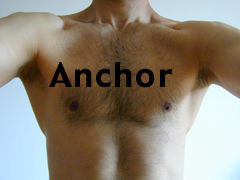
(Flights of) Fantasy Killer, 2000.
Anchored
"Our most sacred convictions, the unchanging elements of our supreme values, are judgements of our muscles."
Friedrich Nietzsche. The Will to Power.
SATURDAY, 9 SEPTEMBER 2000
Process Theology
Trying to make some sense of this: -
|
"Creativity is the principle of novelty. Creativity introduces novelty into the content of the many, which are the universe disjunctively. The creative advance is the application of this ultimate principle of creativity to each novel situation which it originates. The ultimate metaphysical principle is the advance from disjunction to conjunction, creating a novel entity other than the entities given in disjunction. The novel entity is at once the togetherness of the 'many' which it finds and also it is one among the disjunctive 'many' which it leaves; it is a novel entity, disjunctively among the many entities which it synthesises.
"The many become one, and are increased by one. In their natures, entities are disjunctively 'many' in process of passage into conjunctive unity... Thus the 'production of novel togetherness' is the ultimate notion embodied in the term concrescence. These ultimate notions of 'production of novelty' and 'concrete togetherness' are inexplicable either in terms of higher universals or in terms of the components participating in the concrescence. The analysis of the components abstracts from the concrescence. The sole appeal is to intuition."
Alfred North Whitehead, Process and Reality.
|
I found this: -
|
"Process philosophers and theologians (e.g., Alfred North Whitehead, Charles Hartshorne, John B. Cobb, and David Ray Griffin) have formulated a theory of reality that provides a framework to understand the process of unfolding and enfolding. According to process theology, process or change is fundamental to reality. Not everything is in process; but to be actual is to be a process. Reality is a place of process. To be fully real is to be in process. The real is not beyond change, i.e., it is not absolute or unchanging.
"In process, the individuals that we perceive, such as a human being, are actually "societies" of actualities. The structure of process reality consists of these individual actualities, each of whom is a infinitesimal experience which perishes upon coming into being. This is called concrescence: becoming concrete. The measurable temporal process that we experience is the transition from one individual actuality to another. Thus, there are two structural processes: the finite process of transition and the infinitesimal process of concrescence. The transition process hinges time: the past is the collection of those actualities that occurred; the present is the collection of actualities occurring; and the future is where no actuality has yet occurred but has the potential to occur. Time is asymmetrical, non-circular, and non-repetitive.
"In the moment of concrescence each individual actuality enjoys experience. Though not all experience is conscious, all actualities at all levels of consciousness or non-consciousness have experience. The higher the conscious, the greater the enjoyment of experience. The infinitesimal experience of an actuality is essentially related to all past actualities (the whole in every part), its own free-will (self-creation), its own past (experience), God's lure towards divine novelty (all potential wholes).
"Thus, an actuality is firstmost in relation. Reality is fundamentally interdependent, rather than independent. The experience of all past actualities has the potential of being incorporated into the infinitesimal present experience of any given actuality. The finite past is incarnated in the infinitesimal present and thus is objectively immortal. An individual actuality is influenced by past actualities by incarnating them and by responding to them creatively. By exercising its free will and deciding how it will incarnate past experience and the divine lure, each individual actuality is self-creative. Free will is the gift that allows each actuality to respond creatively."
From John Mills' essay: Pneumogenesis: Spirit Ecology & Evolution.
|
And more help here: -
|
"Certain sorts of events and temporal series of events (processes), would then hold the status as the fundamental units or 'primitives' of the universe - a position traditionally the domain of Cartesian substance. These events provide a unity between the observer and the observed, subject and object..."
"... We can discuss such events by starting with concepts of matter in motion, but such an approach is a limited case of a more general view that regards matter, itself, as aggregates of sub-atomic events, as modern physics has shown. Sub-atomic events are instances of the fundamental types of events that Whitehead takes as the basis for his ontology."
"... Consider the act of perception. It is by perception, and this involves cognition, intentionality and affective tone, that we take account of our environment. I look at a pencil in front of me, for example. I have an immediate sense of its overall look-its shape, its length, its color. The pencil is set against a background of my desk and other things in my field of vision, but not things I am at that moment acutely aware of. Also I am only vaguely aware of my body and its relation to the desk and pen. In seeing the pencil, too, whole streams of associative memories are stirred. All of these perceptions and memories are gathered together into the unity, which is this single percipient event-a 'specious present'. The focal point or center of this event being my body. The pencil and the background, as well as the memories, are all internal constituents of my experience, and are therefore causally efficacious of that experiential event. They are said to be internally related to this event. Those objects at that moment are unaffected by my act of perception and so are said to be externally related to the event."
From Peter Farleigh's essay: Whitehead's Even More Dangerous Idea.
|
Links: -
Whiteheadian Terminology.
Donald W. Sherburne. A Key to Whitehead's Process and Reality.
J. McDaniel. 'Physical Matter as Creative and Sentient.' Environmental Ethics Vol. 5 pp. 291-317. 1983. (To be sought out.)
For the Record
Rode my bike over to Renee and Cesare's house last night. Enjoyed an evening of interesting conversation and Cesare demo-ed for me his CD-ROM 'Annunciation' (a 'passion play' over the 1978 kidnapping and execution of Aldo Moro by the Red Brigades).
Bought a very beautiful shrub on the market (actually 6 of them). Reminds me in-a-way of tumbleweed. The dealer said that he had never seen them before. He had a tag on them that said 'Caloce phales' but that appears to be incorrect. I really like them. If they appear again I'm definitely going to buy more.
SUNDAY, 10 SEPTEMBER 2000
Horses
One thing I never, ever, imagined myself doing was reading novels about horses. But this weekend - believe it or not - I finished my first and started my second. The one just completed is called Whistlejacket. The one just started is called The Lime Twig. Both are by the late John Hawkes.
Whistlejacket is a pretty remarkable book, with an episodic structure and obsessive sensuality comparable to J. K. Huysman's masterpiece of fin-de-siècle decadence, Against the Grain. Divided into three sections, the story of Whistlejacket revolves around its center part, 'The Horse Painter' which describes the rather morbid anatomical studies of the British horse painter George Stubbs. The other two sections, 'The Photographer' and 'The Fox Hunter' respectively portray the erotic penchants of the fashion photographer - cum horseman - cum narrator, Michael, and his, as-we-discover, cleverly murdered mentor, Hal.
An example of one of Whistlejacket's taxonomies (Michael is speaking):
"There are those who want to see, those who never think of it. There are those who want to be seen, those who don't. And those who do not wish to be seen fall into three categories: those who have no idea that anyone would bother to look at them, those who hide from being seen or watched, and finally those who know that anyone who looks at them once will look again. The plain, the shy, the furtive. Which will you have? Of those who wish to be seen we find the exhibitionist, the vainglorious, the seductive. A harder choice.
"As for myself I want to see. I am a carnivorous watcher and I pursue them all. No one of them is uninteresting, no matter how much or little our subjects -- for all of them are subjects, which is not the same as models -- may think of themselves. But for me the pursuit quickens when I find myself among those who do not wish to be seen. They are the ones I most want to see."
And Michael again (after describing one his fashion photographs):
"One fetish celebrates another.
"Women want to see what they think men want to see. Why not?"
MONDAY, 11 SEPTEMBER 2000
Fan Mail
- Dr. Fred Lapides (PhD) writes:
-
|
"I read some of this stuff you put up. My advice: go out and get a very hard workout for about two hours. Then go off into the woods, down to the beach, up a mountain -- and then sit and eat and drink... and then do some deep breathing (avoid meditation by all means)... if none of this works, try sex, sex, sex... though (my experience) is that this (sex) is at best a very short but immediate help... of course you might go out and feed the hungry, help the elderly, teach the illiterate, volunteer at school or at a senior center... but get outside yourself. Now. And don't wait."
|
- We reply:
-
|
Thanks.
We do most these things fairly regularly. ( We work out every day, teach, etc.)
Guess it doesn't help...
|
- To which he answers:
-
|
"A good start! Then do whatever you do but more often and with greater intensity. Next: don't read so much. It doesn't help! And, if you must read, read primary sources only. Do not read what so and so says about something but read only so and so. Then go to the classics and begin from scratch. Ignore the papers, the magazines, tv, radio. Offer to help out at some local homeless/soup kitchen a few times per month. Chat with the folks there. Don't make abstract observations. Abstraction is the curse of your generation, a post-something or other that leads to self abuse (mental)... Read Thoreau. Then ask yourself why he never got laid. Read Thoreau. Then ask yourself why he died at 45. Read Thoresau and then ask yourself why you read Thoreau.
"Go to local schools and offer to assist--for free. Read to kids. Ask about their hopes, lives, dreams, fears. Tell them you had and still have the same ones (except yours are more sexual, so you think)... But be brave, above all else. Things have a way of working out after age 80... Raise high the banner!"
|
TUESDAY, 12 SEPTEMBER 2000
Spent the day at the art school in Breda where I've been engaged to oversee a project done by a group of film making and photography students. Later, back in Rotterdam, I had dinner at the Hotel New York with V2's Alex Adriaansens.
WEDNESDAY, 13 SEPTEMBER 2000
I hate it when this happens: between lengthy telephone discussions today with Joke Robaard, Mike Tyler, and Rogério Lira, my thoughts continued to advance until suddenly they-were-back-where-they-started-from.
Reading: Eric Franklin, Dynamic Alignment Through Imagery. (Reviewed here.)
THURSDAY, 14 SEPTEMBER 2000
Do While
Listening to: Oval 94 Diskont. Mille Plateaux, 1995. The 24 minute 'Do While' track is reputedly a 'deconstruction' of several bars of Steve Reich. Noteworthy is the comment that a librarian has written on the CD jacket: 'Tikgeluiden op CD zijn bedoeling van maker.' (Clicking sounds on CD are intended by the maker.)
Spent a good part of my afternoon wandering around the MTNSMS site sending various friends 'free' SMS messages. (Anatomy of this clever site: minimal explanation, trendy interface and atmosphere, cheeky enjoyment of the fact that they are doing something cool and giving it away for nothing -- check out their 'terms and disclaimer' at the bottom of their registration page.)
Now can anyone explain MTNSMS's business model to me? (Or does it have something to do with the fact that I'm the two million eight hundred and ninety-eight thousand nine hundred and ninety-fourth person to register with their service? And that between the time I joined and the time I'm writing this -- roughly six hours later -- more than five thousand other people have signed on? See their stats page.)
FRIDAY, 15 SEPTEMBER 2000
Op en Neer
(There and back, up and down) to Groningen I've been today. To talk with the 8 media students who will do their final exam in June. To see Jente and her four-week-old-son. To re-borrow a copy of Michael Tobias's book 'After Eden: History, Ecology and Conscience' from the university library that I oh-so-dearly-miss. And to confirm, once again, my conviction that the splendor and blessedness of Groningen is due to its splendid isolation.
(Speaking of isolation, I recall it took me quite a lot of practice -- back in 1982 -- to even pronounce the town's name -- to start the G with a dry gargle -- GGGGR -- to slowly admit the drawn out GGG-GROAN -- and then to quickly hack off the last two syllables -- GGGGR-ROAN-ING-EN... To the ear of the foreigner Groningen can be as ugly and imposing as Gormenghast.)
On the train home I read: "It takes roughly 1000 generations to mold a new species..."
Which, of course, is utter poppycock.
SATURDAY, 16 SEPTEMBER 2000
Listening to...
Low: Long Division. (Slow as a glacier, but good.)
Pole: CD 1. (Slightly faster.)
SUNDAY, 17 SEPTEMBER 2000

Relations
|
1. Crise de dédifferentiation.
3. Diversity (as diversion).
5. Silence.
7. Satisfaction - Dissatisfaction.
|
2. Irritability - Aggression.
4. Fugue.
6. (Bad) Timing.
8. Sustainability.
|
THURSDAY, 21 SEPTEMBER 2000
Listening to: The Handsome Family, In the Air. "Recorded by Brett in our livingroom on a Macintosh G3 with guitars, garbage can, autoharp, accordian, melodica, mandolin and what ever else was lying around..."
A.d.i.d.a.s.
(All Day I Dream About Syndersis.)
FRIDAY, 22 SEPTEMBER 2000
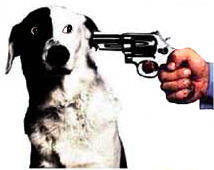 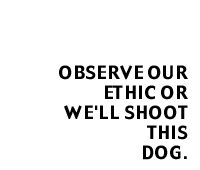
(Image source: "Buy this magazine or we'll shoot this dog." Ed Bluestone's cover of National Lampoon's January 1973 issue.)
Fear Marketing
"Without communion with the dead a fully human life is impossible." W. H. Auden.
Continuing today's consideration of conscience, we can not help but notice how simply we are manipulated by the logic of our hereditary beliefs and world views. By (and through the agency of) our partners, families, friends, communities, organizations, companies and cultures.
Conscience is our memetic morality. It's like that pet dog of the neighbors that sets up house in our house. BUT still answers to the neighbor's calls and commands instead of our own. AND is impossible to get rid of.
SATURDAY, 23 SEPTEMBER 2000
Note to Myself
From thinking about conscience to thinking about moral relativism is but a small step. As is a curiosity about 'the stuff of conscience,' i.e. our current social, cultural, and political assumptions and taboos. The funny thing is that I'd forgotten that I'd been here before in 1998 (September 6) and even discussed it, in a desultory fashion, in 1997 with David and Jouke (see: Race Science and the Other). Even more funny is the fact that David (a.k.a. davidkremers) is at the moment visiting the Netherlands and that we went for a walk on the beach today and I brought up the issues of 'race science' without realising that we had talked about it before...
Thank you Lord for creating a searchable past.
Disclaimer: The links below do not necessarily represent my views.
After Such Knowledge
Stalking the Wild Taboo "These pages, named after a book by Garrett Hardin, are for socio-political thinkers unfettered by submission to the power of the pejorative. Such labels as racist, fascist, communist, and reductionist have little power here. If you are interested in exploring the important issues of the day without the limiting fear of words or labels, then consider yourself our honored guest.
"The function of language is twofold: to facilitate communication, understanding, and thought, or to prevent it. This site makes no attempt either to be politically correct, or to offend, nor will we use language to prevent communication, understanding, and thought, though a number of such examples will be provided. Your emotional responses to the ideas and comments found here are solely your own, explore and enjoy!" Pinc Magazine "It is not the intention of pinc to promote sectarian political agendas or causes, but rather to foster open debate about contentious issues, especially where this debate is more often conducted in whispers and innuendo elsewhere. There is also no implication, implicit or otherwise, that editors, contributors or even readers agree with each other, or subscribe another's beliefs or arguments.
"This is a free trading zone, a marketplace for ideas, not a political re-education camp, Material that is published here is published because the editors consider it interesting and worthy of debate, not because they believe it to be "correct" or "virtuous". While all reasonable effort has been made to corroborate facts, the editors do not take responsibility for factual errors - such responsibility lies with the authors alone. Upstream "These pages are a home for the intellectually heterodox, the politically incorrect and other independent thinkers. A home for outlaws."
SUNDAY, 24 SEPTEMBER 2000
Won my first tennis tournament. (OK, I had some very good luck.)
Listening to Sparklehorse: Good Morning Spider. (Especially the tracks 'Hey Joe' and 'Maria's Little Elbows.')
Cruising the Wild Taboo
To be honest, I have never read anything which describes the core thinking behind our 1996-1998 Amsterdam 2.0 project as perfectly as this: (What's Wrong with) Liberal Tolerance.
Get Real About Race. Christopher Brand, the author of the de-published book, The G Factor, addresses black youth in 'Downlow' (a black oriented music magazine).
MONDAY, 25 SEPTEMBER 2000
From Ambrose Bierce, The Devil's Dictionary (1906):
Conscience, A morbid condition of the stomach, affecting the gray matter of the brain and producing a mental discord.
|
His conscience never did afflict him,
Save when he'd badly dined;
Then like a creditor it kicked him,
Behind.
Vainly the parson he consulted
How to allay the pain;
E'en while he prays he's catapulted
Again.
Thus failing times without a number,
He sought a doctor out,
Who said: 'You've eaten a cucumber,
No doubt.'
'Yes Doctor, but I didn't steal it;
Then why this dark distress?'
'You mean, my friend, you didn't peel it,
I guess.
'Woes that defy the world's religions -
The Spirit's brooding ills -
We scatter, like a flock of pigeons,
With pills.'
|
Intelligence Analysis Made Simple
Here is a succinct guide to understanding the world and making it a better place to live. Seriously. And it's courtesy of the CIA...
Richards J. Heuer, Jr.: The Psychology of Intelligence Analysis. (Center for the Study of Intelligence, Central Intelligence Agency, 1999.)
- Chapter 5: Do You Really Need More Information?
-
"The difficulties associated with intelligence analysis are often attributed to the inadequacy of available information. Thus the US Intelligence Community invests heavily in improved intelligence collection systems while managers of analysis lament the comparatively small sums devoted to enhancing analytical resources, improving analytical methods, or gaining better understanding of the cognitive processes involved in making analytical judgments. This chapter questions the often-implicit assumption that lack of information is the principal obstacle to accurate intelligence judgments."
- Chapter 11: Biases in Perception of Cause and Effect.
-
"Judgments about cause and effect are necessary to explain the past, understand the present, and estimate the future. These judgments are often biased by factors over which people exercise little conscious control, and this can influence many types of judgments made by intelligence analysts. Because of a need to impose order on our environment, we seek and often believe we find causes for what are actually accidental or random phenomena. People overestimate the extent to which other countries are pursuing a coherent, coordinated, rational plan, and thus also overestimate their own ability to predict future events in those nations. People also tend to assume that causes are similar to their effects, in the sense that important or large effects must have large causes.
"When inferring the causes of behavior, too much weight is accorded to personal qualities and dispositions of the actor and not enough to situational determinants of the actor's behavior. People also overestimate their own importance as both a cause and a target of the behavior of others. Finally, people often perceive relationships that do not in fact exist, because they do not have an intuitive understanding of the kinds and amount of information needed to prove a relationship."
TUESDAY, 26 SEPTEMBER 2000
State Representation
Today's big question: Why do we always perceive the notion of 'caste' and 'the caste system' as repugnant and reprehensible?
From Enduring Stereotypes about India's Caste System by Joe Elder:
"The government of India's 1960 publication entitled 'Scheduled Castes and Tribes Arranged in Alphabetical Order' lists 405 scheduled castes and 255 scheduled tribes, for a total of 660 kinship groups (the boundaries distinguishing castes and tribes are unclear). Indian citizens who can establish their claim to belong to one of these publicly identified 'castes' or 'tribes' are today entitled to special benefits from the government (e.g. preferential access to government jobs, special representation on elected bodies, etc.). More recently, the government has published lists of 'Other Backward Classes' -- 52 percent of India's population belonging to kinship groups that are also entitled to certain benefits because they are disadvantaged -- but generally less disadvantaged than the scheduled castes and scheduled tribes. The government's 1980 publication 'Report of the Backward Classes Commission' (also the Mandal Commission Report) lists on a state-by-state basis a total of 3743 castes belonging to 'Other Backward Classes' above and beyond the 'Scheduled Castes' and the 'Scheduled Tribes' included in the earlier government lists."
"The caste made up of one's own intra-marrying lineages forms one's ultimate base of social support. These are the people to whom one is related, whose food one can eat, whose hospitality one can provide (and benefit from), to who one will have to depend for aid in one's old age and for proper disposal of one's body after one's death. When defined as marriage-pool lineages, hundreds of thousands such castes exist today in India. Strong we-they distinctions are often drawn between the members of one's caste and members of other castes. What from one's perspective is standing by one's relative, from another perspective is favoritism and nepotism. Also higher and social distinction between castes are often perpetuated -- or challenged. Certain lineages fall out of favor, are cut off, and become separate castes that see themselves as near social equals. Caste's standing in relation to one anther are constantly being renegotiated on the basis of changing wealth, power, status, ritual behavior, sponsorship by important 'others,' political mobilization, education and geographical location..."
Elsewhere
We're happy to see that Ray Davis has finally installed the Hotsy Totsy webcam.
WEDNESDAY, 27 SEPTEMBER 2000
The Bridge Too Far
|

When we were young and things were simple our 'bridge too far' was called the Pettullo Bridge. As kids we were allowed to cross it to go fishing for salmon on the sandbars that stretched along its far bank. At the time it was more than a long walk down the hill to the river and across the bridge -- it was a full day's journey, an expedition, an adventure, and ultimately a test of our growing freedom.
'Le plus ça change, le plus c'est la même chose.' The more the bridges change, the more the bridges stay the same. Now that we're older we sometimes find new 'bridges too far' to challenge our spirit and test our freedom. But what do we do when we've crossed them? As kids we hung out on the other side of the river as long as possible, gathering wood, building fires and doing our best to catch fish. As adults -- more often that not -- we just feel lost and turn around and go home.
Today (on my way home) I read John Howard Griffin's 'Black Like Me' (1960).
|
|
THURSDAY, 28 SEPTEMBER 2000
Woke up to a beautiful, blustery, wet morning. Rain splattering against the glass. The sort of day that invites you to curl up by the window and sip cups of tea. Calm. Dream-like. Self-contained. A day to watch the clouds and mists and shifting views. A good wei-wu-wei day (spent attentively doing nothing) or a day to spend minimally:-- reading a Chinese poem or listening to the work of Morton Feldman.
Looking Backward
And today it was exactly a year ago that I quit working at Media-GN. In retrospect I see that moment as one of the most significant bifurcation points of my life, the start of a year of personal unravelling and free-fall (and lots of wei-wu-wei days). But even if it were possible to go back now and do things differently -- I doubt whether I would do so.
Down the Up Staircase
So what brings people to consciously choose a season in hell? Their conscience? Their curiosity? Their art? As a step towards understanding this great mystery I've begun to make list of those who have tried to take a walk on the wild side of racial differences. Here (in 'web safe colors') are the first four entries of this list:
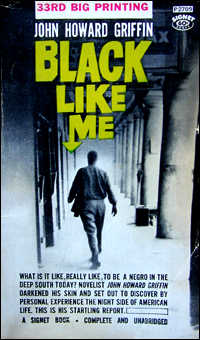 |
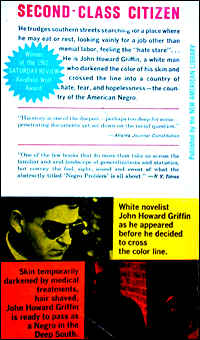 |
|
Front:
"What is it like, really like, to be a Negro in the deep south today? Novelist John Howard Griffin darkened his skin and set out to discover by personal experience the night side of American life. This is his startling report." |
Back:
"He trudges southern streets searching for a place where he may eat or rest, looking vainly for a job other than menial labor, feeling the 'hate stare'... He is John Howard Griffin, a white man who darkened the color of his skin and crossed the line into a country of hate, fear, and hopelessness -- the country of the American Negro.
"His story is one of the deepest -- perhaps too deep for some -- penetrating documents yet set down on the racial question."
"One of the few books that do more than take us across the familiar and arid landscape of generalizations and statistics, but convey the feel, sight, sound and sweat of what the abstractly titled 'Negro Problem' is all about."
"White novelist John Howard Griffin as he appeared before he decided to cross the color line."
"Skin temporarily darkened by medical treatments, hair shaved, John Howard Griffin is ready to pass as a Negro in the Deep South."
|
[1.] John Howard Griffin: 'Black Like Me.' 1960. Out of print, though used copies can easily be located through the Advanced Book Exchange. [2.] Grace Halsell: Soul Sister. 1969. 30th Anniversary edition, 1999. "I was working in the White House during the passage of historic Civil Rights legislation. I wanted to know first-hand what it was like living as a black. So I found out the hard way. I found all facilities and institutions totally segregated. I rode in the back of segregated buses, stayed in the homes of black families who knew I was white, passing as black and who helped me find jobs. Often I stood on a Jackson, Mississippi street corner, waiting for a white housewife who had hired me for the day through an agency. I found no job opportunities other than working as a maid for $5 a day." [3.] Joshua Solomon: Reliving 'Black Like Me' -- My Own Journey Into the Heart of Race-Conscious America. (The Washington Post, October 30, 1994.) -
"So it was that, in February of this year, I talked with Aaron B. Lerner, a physician who heads the department of dermatology at Yale University. I told him that I, a white, 20-year-old University of Maryland sophomore, had dropped out of school for a semester to live as a black man. And I wanted his help.
"Lerner was surprisingly nonchalant. Unlike others I'd told, he didn't dismiss me. Instead he explained that Griffin had used a derivative of the drug Psorlen to change his skin from white to brown. He also explained that it was suspected that Griffin's early death in 1980 was partially due to liver damage caused by the medication. I told the doctor that I'd had a heart condition since birth, that I was used to the dangers of potent medication and to life-and-death choices."
[4.] Günter Wallraff: Ganz Unten. 1985. (Translated as 'Lowest of the Low: The Turkish Worker in Western Germany.' 1988.)
August 2000
ALAMUT.COM is artist owned and operated.
feedback@alamut.com
Page created: 31/8/00
Page last modified: 2/10/00

|

|












